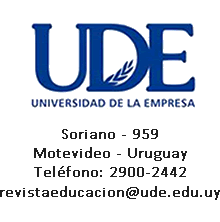Portugués
DOI:
https://doi.org/10.48163/rseus.2017.5185-98Keywords:
Pedagogia da superação, Ações educativas, Prática pedagógicaAbstract
This thesis approaches the processes of overcoming resulting from case studies proposes educational actions of overcoming. It’s about overcoming adversities and difficulties present in people’s lives. The main objective was to study the essential factors that lead people to overcome, proposing a pedagogy as a means of accessing these factors. Therefore, we work on overcoming aspects related to the pedagogical practice that allows the individual to overcome. The cases studied in this research allowed us to find a synthesis of 5 key factors present in life trajectories considered successful. This work was developed from the qualitative research methodology and the case study method. The cases studied are public, so they provided diverse sources of data. We looked for cases of people who overcame several problems and an analysis was made of the occurrences of the factors that contributed to the overcomes. In order to carry out this study, the theoretical concepts of Morin (2011, 2008, 2006, 2002, 2000) were used in relation to Complexity, specifically to what is connected to disorder and unforeseen in all things. The contributions of Makiguti (2004, 2002, 1995) on the Creation of Values to build a possible world to be inhabited.
Downloads
Published
How to Cite
Issue
Section
License
Política para revistas de acceso abierto
Los autores/as que publiquen en esta revista aceptan las siguientes condiciones:
a. Los autores/as conservan los derechos de autor y ceden a la revista el derecho de la primera publicación, con el trabajo registrado con la licencia de atribución de Creative Commons (CC-BY), que permite a terceros utilizar lo publicado siempre que mencionen la autoría del trabajo y a la primera publicación en esta revista.
b. Los autores/as pueden realizar otros acuerdos contractuales independientes y adicionales para la distribución no exclusiva de la versión del artículo publicado en esta revista (p. ej., incluirlo en un repositorio institucional o publicarlo en un libro) siempre que indiquen claramente que el trabajo se publicó por primera vez en esta revista.






















